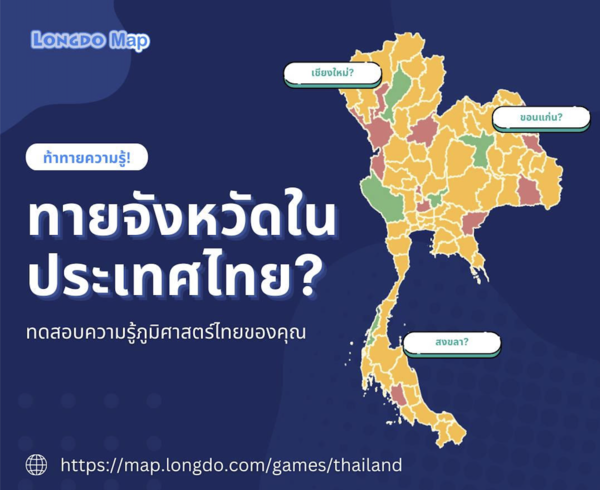| 試験 | - (しけん) การสอบ [LongdoJP]
- (しけん) (n,vs) examination; test; study; trial; experiment; (P) [EDICT]
|
| を | - () (prt) (arch) (See を) marks object of action, etc. (also adds emphasis) [EDICT]
|
| 最初 | - (さいしょ) (adj-no,n-adv,n-t) beginning; outset; first; onset; (P) [EDICT]
- (zuì chū, ㄗㄨㄟˋ ㄔㄨ) first; primary; initial [CE-DICT]
|
| に | - (二) สอง [LongdoJP]
- () (prt) indicates location of action (formal literary form of "de"); at; in; (P) [EDICT]
- () (prt) (See に,は) for (in regard to); in order to [EDICT]
- () (exp) also; too; not ... either; as well; even [EDICT]
- () (exp) (1) (also にゃあ) (See ねば) if not ... (negative conditional); (2) (See には) for (in regard to); in order to [EDICT]
- (荷) (n) (1) load; baggage; cargo; freight; goods; (2) burden; responsibility; (P) [EDICT]
- (似) (suf) takes after (his mother) [EDICT]
- (丹) (n) red earth (i.e. containing cinnabar or minium); vermilion; (P) [EDICT]
- (土) (n) (arch) soil (esp. reddish soil) [EDICT]
- (尼) (n,n-suf) (abbr) (See 比丘尼) bhikkhuni (fully ordained Buddhist nun) [EDICT]
- (弐) (num) two (used in legal documents) [EDICT]
|
| やる | - (演る) (v5r) (sl) (See 演じる) (usu. used in the popular music industry) to perform; to play; to act [EDICT]
- (遣る) (v5r,vt) (1) (uk) (col) to do; (2) (often 犯る) to have sexual intercourse; (3) (often 殺る) to kill; (4) to give (to inferiors, animals, etc.); (aux-v) (5) to do for (inferiors); (6) (See 使いにやる) to send (e.g. somebody somewhere); to dispatch (e.g. letter) (despatch); (7) to move (something to); to row (a boat); (8) (used in place of other verb) to have (eat, drink, smoke); to study; to run or operate (a restaurant); (P) [EDICT]
- (殺る) (v5r) to do someone in; to bump someone off [EDICT]
|
| 終える | - (おえる) (v1,vt) (1) (終える, 了える only) to finish; (2) to graduate; (P) [EDICT]
|
| 学生 | - (がくせい) นักเรียน, นิสิต, นักศึกษา [LongdoJP]
- (がくしょう;がくそう) (n) (1) (arch) Heian-period student of government administration; (2) (arch) Buddhist scholar; researcher at a Buddhist temple; person studying Buddhism; (3) (arch) learning; scholarship [EDICT]
- (がくせい) (n) student (esp. a university student); (P) [EDICT]
- (xué sheng, ㄒㄩㄝˊ ㄕㄥ˙) student; school child [CE-DICT]
|
| が | - () (prt) (positive sentence end) I dare say; (negative sentence end) though, honestly [EDICT]
- () (suf,v5r) (1) to feel (on adj-stem to represent a third party's apparent emotion); (2) to behave as if one were [EDICT]
- () (n) scree [EDICT]
- () (adv-to) (1) (on-mim) thump; thud (dull sound representing something being hit); (2) severe; difficult; hard [EDICT]
- (我) (n) (1) {Buddh} obstinacy; (2) atman; the self; the ego [EDICT]
- (画) (n) picture; drawing; painting; sketch [EDICT]
- (蛾) (n) moth [EDICT]
- (賀) (n) (See 賀の祝) congratulation [EDICT]
- (雅) (n,adj-na) (1) (ant [EDICT]
|
| 必ずしも | - (かならずしも) (adv) (not) always; (not) necessarily; (not) all; (not) entirely; (P) [EDICT]
|
| 一番 | - (いちばん) (n-adv) (1) best; first; number one; (2) game; round; bout; fall; event (in a meet); (P) [EDICT]
- (ひとつがい) (n) (uk) pair; couple; brace [EDICT]
|
| 成績 | - (せいせき) (n) results; record; grades; (P) [EDICT]
- (chéng jì, ㄔㄥˊ ㄐㄧˋ) achievement; performance records; grades [CE-DICT]
|
| 取る | - (とる) (v5r,vt) (1) to take; to pick up; to harvest; to earn; to choose; (2) (See 盗る) to steal; (3) (See 摂る) to eat; to have (a meal); (4) (also written as 脱る) to remove (one's glasses, etc.); (5) to compete (in sumo, cards, etc.); to play; (P) [EDICT]
|
| わけ | - (戯奴) (n) (1) (arch) (hum) me; (2) (fam) you [EDICT]
- (分け) (n,n-suf) (1) sharing; division; (2) draw; tie; (P) [EDICT]
- (別け) (n,n-suf) (1) sharing; division; (2) draw; tie; (P) [EDICT]
- (別) (n) (arch) (See 姓・かばね) lord (hereditary title for imperial descendants in outlying regions) [EDICT]
- (訳) (n) (uk) conclusion from reasoning, judgement or calculation based on something read or heard; reason; cause; meaning; circumstances; situation; (P) [EDICT]
|
| だ | - () (prt) (1) (as …たり…たり, after the ren'youkei forms of multiple verbs) -ing and -ing (e.g. "coming and going"); (2) (used adverbially) doing such things as...; (3) (as …たり…たり at sentence-end, after the ren'youkei forms of a repeated verb) expresses a command; (aux-v) (4) (たり only) (arch) (from とあり) (See たる) (after a noun) to be; (5) (たり only) (arch) (from 〜てあり, after the ren'youkei form of a verb) indicates completion or continuation of an action; (P) [EDICT]
- () (prt) (1) (fam) marks wh-question (what, where, who); (2) (chn) strengthens one's judgment or conclusion; (P) [EDICT]
- () (exp) if it's the case; (P) [EDICT]
- () (prt) even [EDICT]
- () (suf,prt) and; or; and the like; and so forth; and what not; (P) [EDICT]
- () (exp) (1) (See でしょう) seems; I think; I guess; I wonder; I hope; (2) don't you agree?; I thought you'd say that!; (P) [EDICT]
- () (n) (col) (abbr) (See 友達) friend [EDICT]
- () (n) undercut (of a machined edge) [EDICT]
- (駄) (pref) (1) (See 駄文・1) poor; low-grade; trivial; insignificant; worthless; (n-suf,ctr) (2) (See 一駄) load; pack; horse load; (n) (3) packhorse [EDICT]
- (兌) (n) dui (one of the trigrams of the I Ching [EDICT]
|
| は | - (葉) ใบไม้ [LongdoJP]
- () (int) (1) (pol) yes; (2) OK (used to get attention prior to an utterance); okay; (3) giddy-up; giddap; (P) [EDICT]
- () (v5r,aux-v,suf) (hon) (ksb [EDICT]
- () (suf) (ksb [EDICT]
- (歯) (n) tooth; (P) [EDICT]
- (刃) (n) edge (of a knife or sword); (P) [EDICT]
- (派) (n,n-suf) clique; faction; school; (P) [EDICT]
- (破) (n) (See 序破急) (in gagaku or noh) middle section of a song [EDICT]
- (葉) (n) leaf; (P) [EDICT]
|
| ない | - () (exp) (1) (See ませんか) (used to ask a question in the negative) won't (hasn't, isn't, doesn't, etc.); (2) (used to make invitations, express desires or give indirect commands) won't you [EDICT]
- () (conj,aux) (1) (See ない) without doing ...; (aux) (2) used in sentence-final position as an indirect prohibition [EDICT]
- (内) (suf) inside; within [EDICT]
- (亡い) (adj-i) (See 無い) dead [EDICT]
- (無い) (adj-i) (1) (uk) (See 亡い) nonexistent; not being (there); (2) unpossessed; unowned; not had; (3) (See またとない) unique; (4) (as ...ことがない, etc.) indicates negation, inexperience, unnecessariness or impossibility; (aux-adj) (5) (See ない) (after the ren'youkei form of an adjective) not ...; (6) (after the -te form of a verb) to not be...; to have not ...; (P) [EDICT]
|



